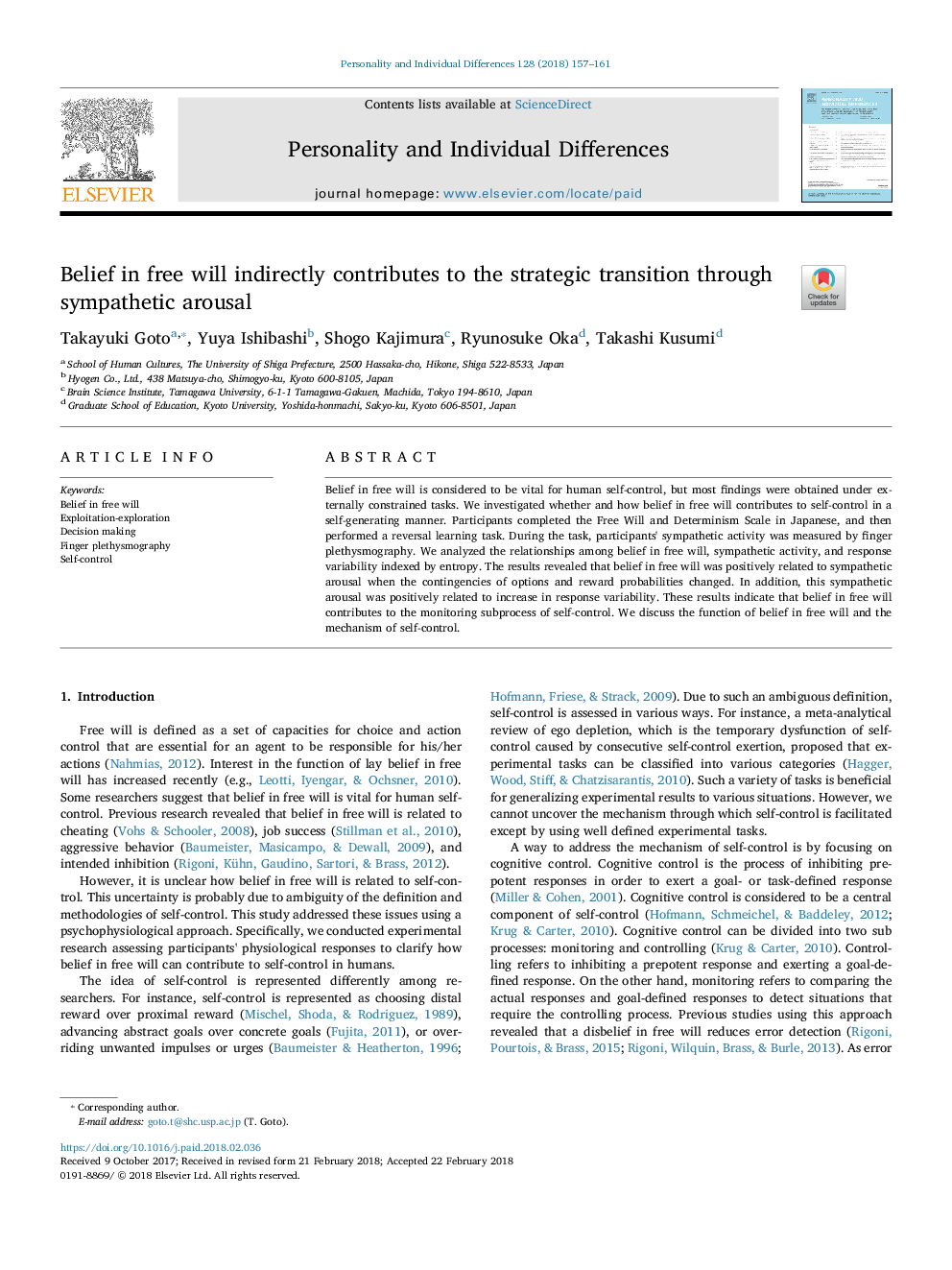ترجمه فارسی عنوان مقاله
اعتقاد به آزادی به طور غالب به انتقال استراتژیک از طریق تحریک همدردی کمک می کند
عنوان انگلیسی
Belief in free will indirectly contributes to the strategic transition through sympathetic arousal
| کد مقاله | سال انتشار | تعداد صفحات مقاله انگلیسی |
|---|---|---|
| 128254 | 2018 | 5 صفحه PDF |
منبع

Publisher : Elsevier - Science Direct (الزویر - ساینس دایرکت)
Journal : Personality and Individual Differences, Volume 128, 1 July 2018, Pages 157-161
ترجمه کلمات کلیدی
اعتقاد به اراده آزاد، بهره برداری-اکتشاف، تصمیم سازی، پلتیسموگرافی انگشتی خود کنترلی،
کلمات کلیدی انگلیسی
Belief in free will; Exploitation-exploration; Decision making; Finger plethysmography; Self-control;
ترجمه چکیده
اعتقاد به اراده آزاد، به عنوان کنترل حیاتی انسان شناخته می شود، اما بیشتر یافته ها به واسطه وظایف محدود و محدود به دست می آید. ما بررسی کردیم که چگونه اعتقاد به آزادی به نوع خودسازماندهی خود کنترل می بخشد. شرکت کنندگان مقیاس اراده آزاد و تعیین کننده را در ژاپن به اتمام رساندند و سپس کار یادگیری معکوس را انجام دادند. در طول وظیفه، فعالیت سمپاتیک شرکت کنندگان توسط پلتیسموگرافی انگشت اندازه گیری شد. ما روابط بین اعتقاد به اراده آزاد، فعالیت سمپاتیک و تغییرات پاسخ داده شده توسط آنتروپی را تجزیه و تحلیل کرد. نتایج نشان داد که اعتقاد به اراده آزاد، به طور مثبت با تشویش سمپاتیک ارتباط دارد، در حالی که احتمالات گزینه ها و احتمال پاداش تغییر می کند. علاوه بر این، این برانگیختگی همدردی با افزایش تغییرات پاسخ مثبت بود. این نتایج نشان می دهد که اعتقاد به آزادی، به زیر فرآیند کنترل کنترل خود کمک می کند. ما در مورد عملکرد باور به اراده آزاد و مکانیزم کنترل خود صحبت می کنیم.

